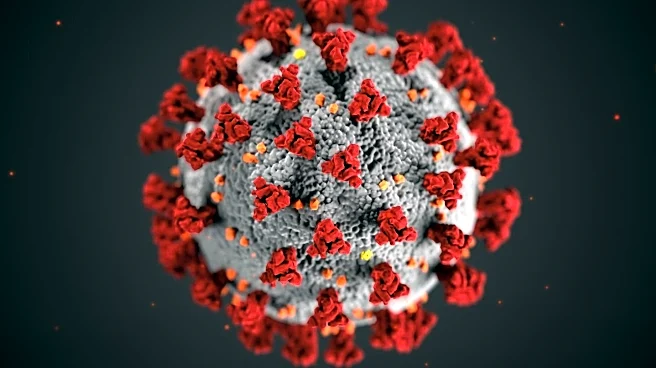What's Happening?
The Covid-19 vaccines, which cost $79 billion to develop and deliver globally, have provided health and economic benefits valued between $5 trillion and $38 trillion in their first year. This significant return on investment is based on avoided infections, hospitalizations, and deaths. The study, led by Oliver Watson at Imperial College London, highlights the economic value of vaccines beyond their life-saving capabilities. The research estimates that Covid-19 vaccines averted more than 14 million deaths in their first year of use, with benefits calculated from avoided workdays lost to illness, reduced healthcare costs, and years of life saved.
Why It's Important?
The study underscores the substantial economic and health benefits of Covid-19 vaccines, emphasizing the importance of continued investment in vaccine research and development. The findings are particularly relevant as policymakers face decisions on resource allocation amidst finite resources. The analysis demonstrates that Covid-19 vaccination offers an excellent return on investment, which could influence future funding decisions, especially in light of recent reductions in U.S. funding for mRNA vaccine development.
What's Next?
The study's timing coincides with recent U.S. policy changes regarding vaccine funding, potentially influencing future investment decisions. As debates continue over the effectiveness and value of vaccines, this research may serve as a critical reference point for policymakers and stakeholders in the healthcare sector.
Beyond the Headlines
The study also addresses skepticism from vaccine critics, explaining that higher death rates in 2021 were due to lifted Covid-19 control measures, which increased exposure to the virus. Without vaccination, death rates would have been significantly higher, highlighting the counterfactual benefits of vaccines.









